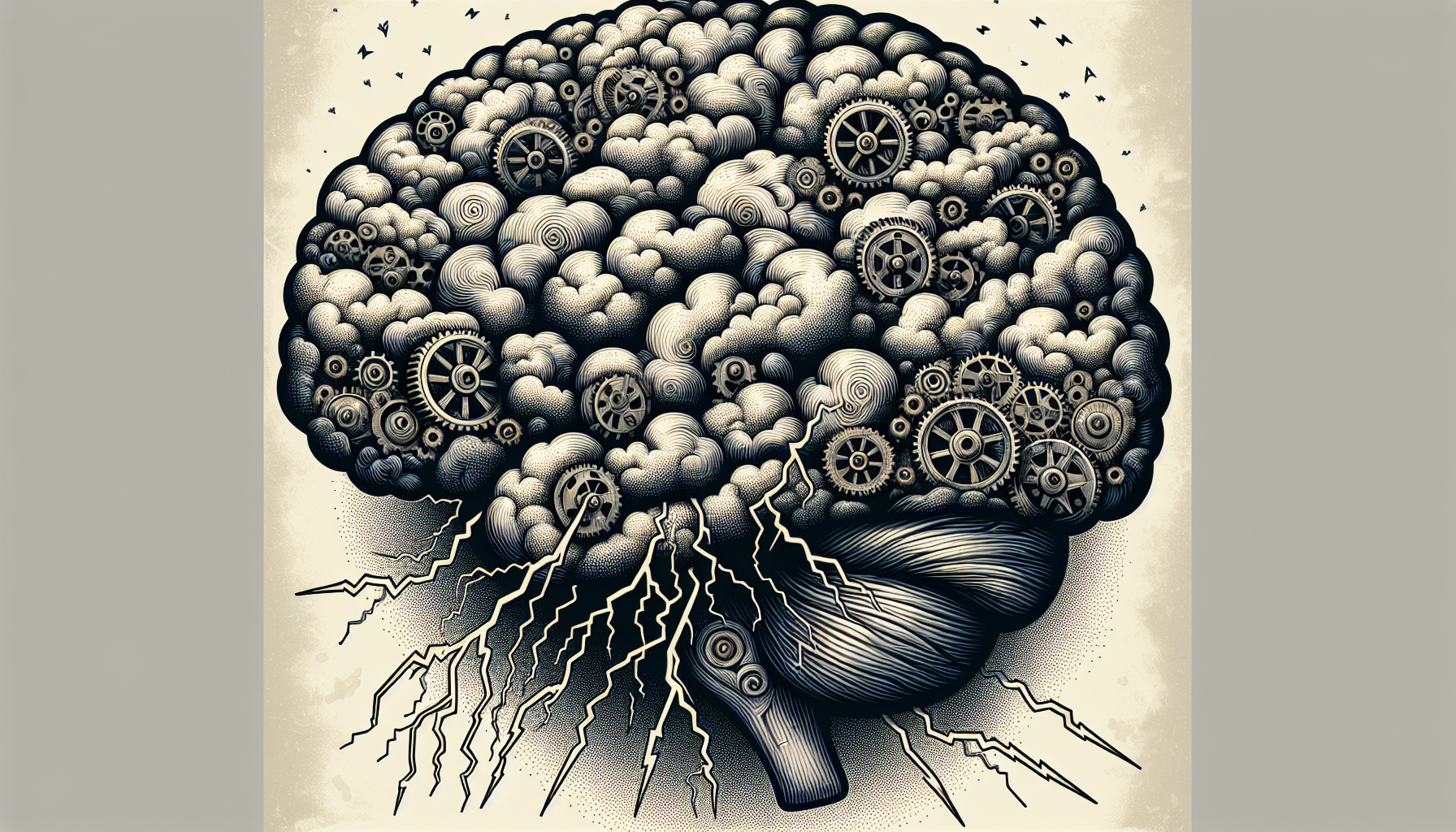Stress is an inherent part of life, a universal human experience that can be as minor as a fleeting concern or as major as a chronic condition affecting our mental and physical health. Chronic stress, in particular, poses a significant threat to our brain health, altering its structure and function in ways that can lead to long-term damage. This article aims to explore the impact of chronic stress on the brain and offer strategies to mitigate its harmful effects, ensuring the maintenance and improvement of cognitive health.
The Neurological Impact of Chronic Stress
Chronic stress triggers a cascade of chemical responses in the body, which can be particularly detrimental to the brain. The release of stress hormones like cortisol can disrupt synaptic regulation, leading to a loss of sociability and the avoidance of interactions. Over time, the high levels of cortisol can kill cells in the hippocampus, the brain region responsible for episodic memory and regulation of emotional responses.
One of the most significant effects of chronic stress is the alteration of brain structure. Studies have shown that it can lead to a decrease in the volume of the prefrontal cortex, the area associated with decision making and self-control. Meanwhile, the amygdala, which plays a crucial role in fear and emotional responses, may become hyperactive and increase in size.
For those interested in a deeper understanding, this study provides comprehensive insights into the molecular and cellular mechanisms of how stress can alter brain function.
Cognitive Consequences
The cognitive consequences of chronic stress are profound. It can impair executive functions like attention, memory, and the ability to plan. This can make daily tasks more challenging and decrease work efficiency, as well as affect personal relationships and overall quality of life. The impact of stress on cognitive performance is another resource that delves into the cognitive implications of stress.
Physical Health and Stress
Chronic stress doesn’t only affect mental health; it also has physical repercussions. It’s linked to a variety of health issues, including cardiovascular health, due to the increased heart rate and blood pressure that accompany stress responses. Persistent stress can also compromise the immune system, making one more susceptible to illnesses.
Strategies for Managing Chronic Stress
Managing chronic stress requires a multifaceted approach that involves lifestyle changes, developing coping strategies, and sometimes professional help. Here are some effective strategies:
Mindfulness and Meditation
Mindfulness meditation has been shown to reduce the size of the amygdala and lower stress levels. Regular practice can help you become more aware of the present moment and less reactive to the stressors you cannot control. For those interested in starting a practice, resources like Mindful offer guidance on mindfulness meditation.
Physical Exercise
Engaging in regular physical exercise not only promotes physical health but is also one of the most effective ways to combat stress. Exercise releases endorphins, the brain’s feel-good neurotransmitters, and can act as a natural anti-anxiety treatment.
Cognitive-Behavioral Therapy (CBT)
CBT is a type of psychotherapy that can help manage stress by changing negative patterns of thinking and improving emotional regulation. It focuses on developing personal coping strategies that target solving current problems and changing unhelpful patterns in thoughts, beliefs, attitudes, and behaviors.
Social Support
Maintaining a strong network of support can help mitigate the effects of stress. Engaging in social activities and talking to friends and family can provide emotional support and distraction from stressors. More insights into this can be found in the article on the brain health benefits of regular social engagement.
Diet and Nutrition
A healthy diet can counter the impact of stress by boosting the immune system, lowering blood pressure, and stabilizing mood. Omega-3 fatty acids, for example, have been found to reduce the symptoms of stress. For more information on how diet can influence brain health, consider reading how diet affects your cognitive function.
Sleep Hygiene
Quality sleep is essential for managing stress. Establishing a regular sleep routine can greatly improve your stress levels and overall brain health. For more details on the role of sleep in maintaining brain health, refer to the resource on the role of sleep in maintaining brain health.
Time Management
A common source of stress is the feeling of having too much to do and not enough time to do it. Effective time management can help reduce stress by giving a sense of control over your life. Tools like planners and apps can help you organize and prioritize your tasks.
Professional Support
In some cases, professional help may be necessary to manage chronic stress effectively. This might include counseling or therapy with a licensed professional, or even medication in some cases.
Additional Resources
For those seeking further information, the American Institute of Stress offers valuable resources on understanding and managing stress. Another excellent resource is the Anxiety and Depression Association of America, which provides comprehensive information on the link between stress, anxiety, and depression.
Conclusion
Chronic stress can have debilitating effects on the brain, but with the right tools and support, its impact can be mitigated. By incorporating strategies such as mindfulness, exercise, and proper nutrition into our daily routines, we can protect our cognitive health and improve our resilience against life’s inevitable pressures. Remember that seeking help is a sign of strength, not weakness, and professional support can be a cornerstone in building a healthier, less stressed life.



